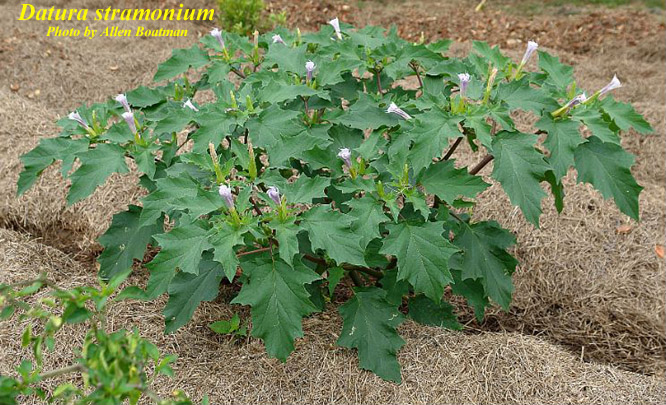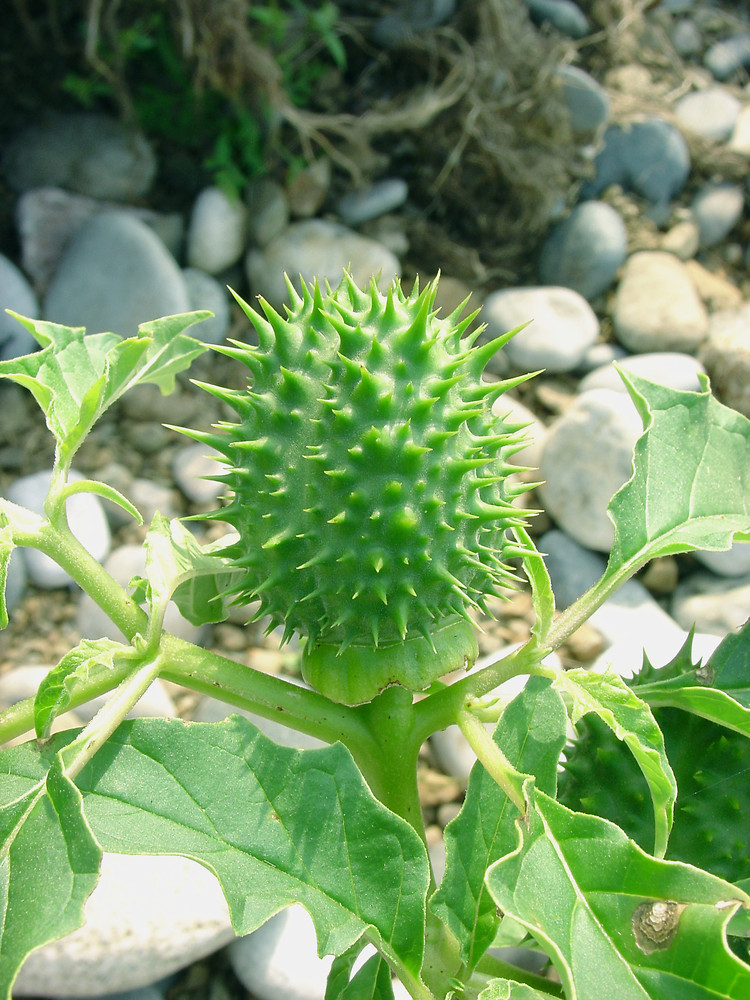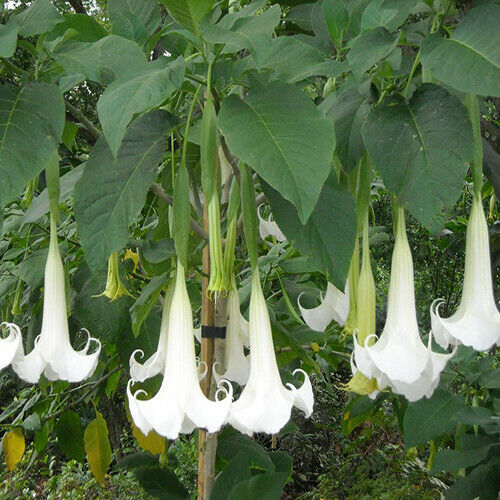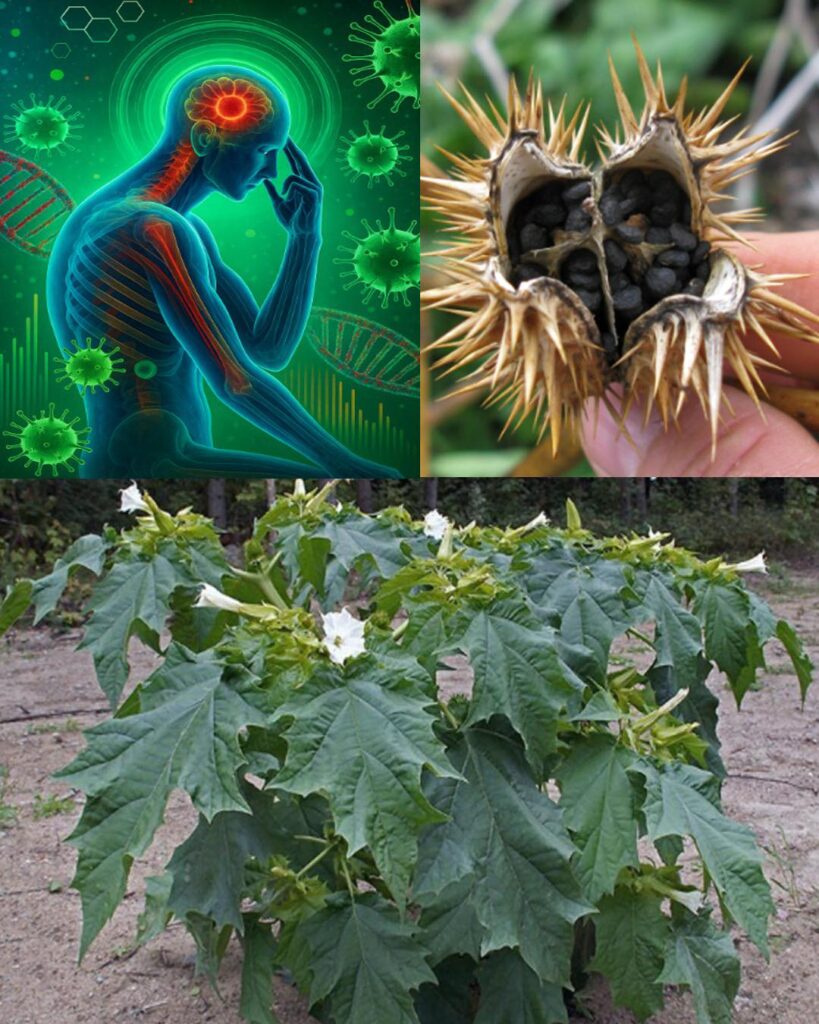Datura stramonium, also known as thorn apple, jimsonweed, devil’s trumpet, or datura, is a plant that has fascinated and alarmed people for centuries. Its striking appearance and potent effects make it a subject of interest in botany, traditional medicine, and even folklore. However, its toxic nature demands careful handling and respect.
Datura stramonium is a member of the nightshade family (Solanaceae), which includes plants like tomatoes, potatoes, and deadly nightshade. Native to the Americas, it has spread globally, thriving in a variety of environments, especially in disturbed soils such as roadsides, pastures, and waste grounds.

Key Features:
- Height: Up to 1.5-2 meters.
- Leaves: Broad, dark green, with irregular lobes.
- Flowers: Trumpet-shaped, often white or pale purple, with a sweet but heavy fragrance. They bloom at night.
- Seed Pods: Spiny, oval capsules that split open when mature, releasing numerous small, black seeds.
Chemical Composition and Effects
Datura stramonium contains several potent alkaloids:
- Atropine
- Scopolamine
- Hyoscyamine
These compounds act on the central and peripheral nervous systems. They block the neurotransmitter acetylcholine, leading to a variety of effects ranging from mild sedation to severe hallucinations and delirium.
Historical and Cultural Uses
Datura stramonium has a long history of use in various cultures for its medicinal and psychoactive properties.

Health Risks of Datura Stramonium:
While Datura Stramonium may be visually appealing, it contains potent alkaloids such as atropine, scopolamine, and hyoscyamine, which are highly toxic to humans and animals. Ingesting any part of the plant, including the leaves, flowers, seeds, or roots, can lead to a range of symptoms, including hallucinations, delirium, rapid heartbeat, blurred vision, dry mouth, difficulty swallowing, and even coma or death in severe cases.
Accidental Poisonings and Concerns:
Despite its toxicity, Datura Stramonium is sometimes grown in gardens for its ornamental value, and its seeds are also occasionally used in traditional medicine or as a recreational drug due to their hallucinogenic properties. However, this poses a significant risk, especially in households with children or pets who may unknowingly come into contact with the plant.
Prevention and Management:
To prevent accidental poisonings, it is essential for gardeners to familiarize themselves with the characteristics of Datura Stramonium and to exercise caution when handling or disposing of it. If you suspect that you or someone else has ingested or come into contact with Datura Stramonium, seek medical attention immediately. In cases of poisoning, prompt treatment is crucial for a successful outcome.

While Datura Stramonium may be visually striking, its potential toxicity makes it a plant best avoided in gardens and landscapes, especially in environments where children or pets are present. By being aware of the risks associated with this plant and taking appropriate precautions, gardeners can help ensure the safety of themselves and their loved ones.
Datura Stramonium may have its allure, its toxic nature underscores the importance of exercising caution when selecting plants for your garden. Always research the plants you intend to grow, and if you suspect that you have Datura Stramonium in your garden, take the necessary steps to remove it safely and prevent accidental exposure.
Datura stramonium is a plant of contrasts—beautiful yet dangerous, medicinal yet toxic. Its historical significance and modern applications showcase its dual nature. Whether studied for its scientific properties or admired for its striking appearance, it serves as a powerful reminder of nature’s potency. Caution and respect are essential when encountering this enigmatic plant.
Datura Stramonium gardening secrets gardening tips plants and gardening


